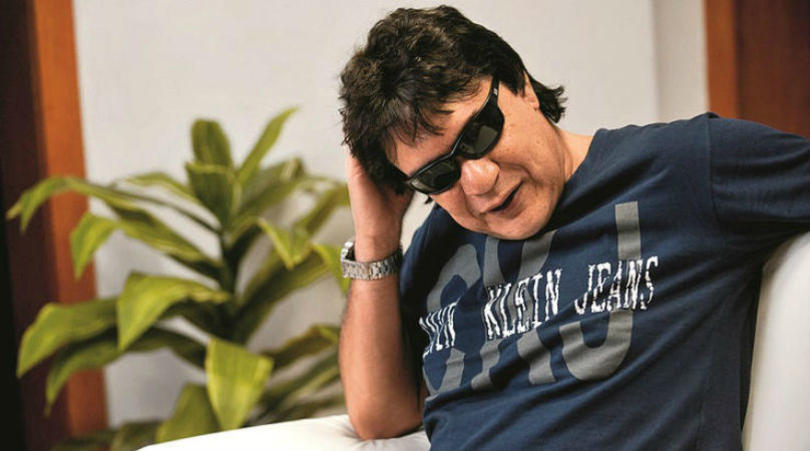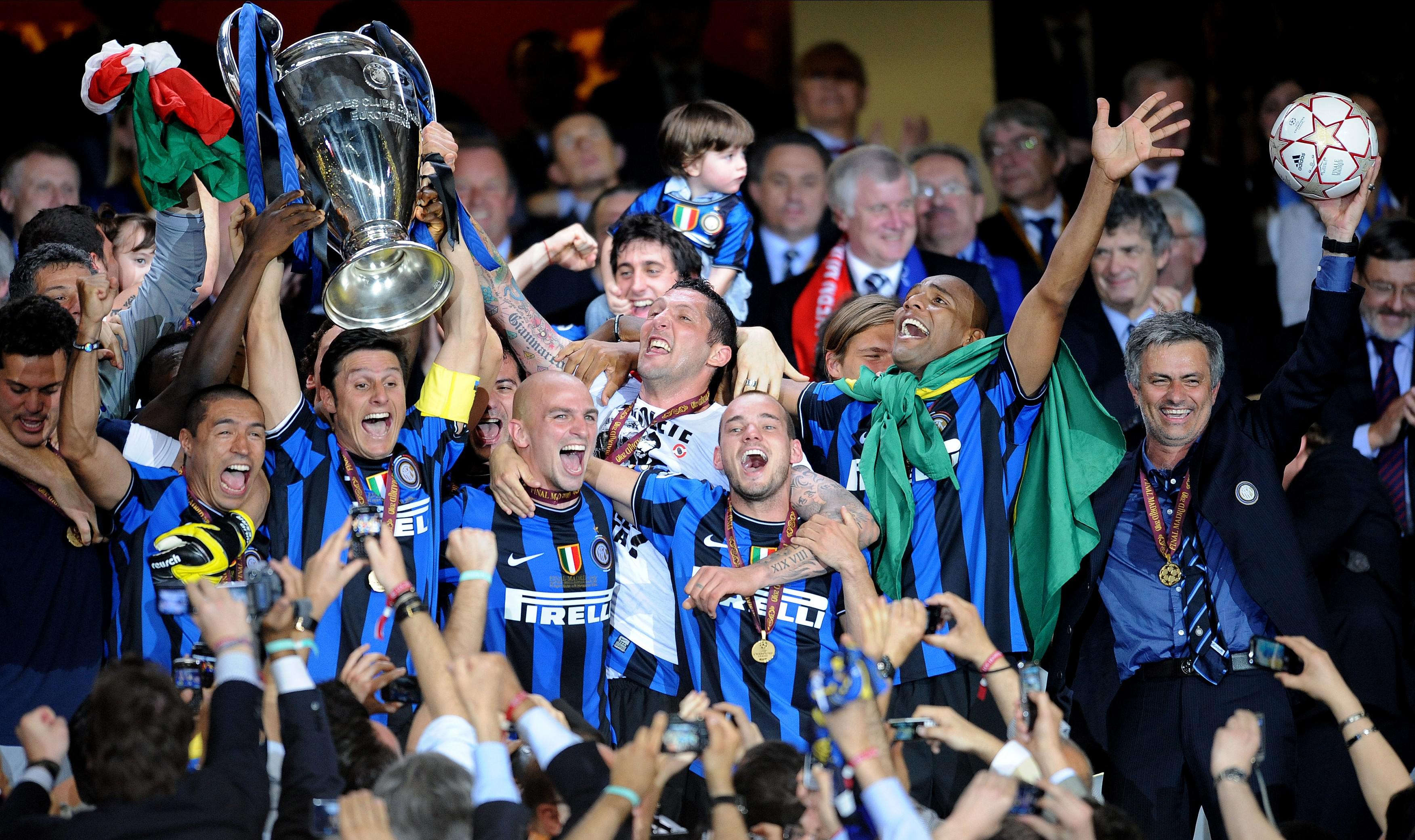Richarlison: “On the day that the guy pointed the gun at my head, he thought I was a drug dealer”
When you’re young, adapting to life in a new country thousands of miles from home can be tough. But when you’ve been through as much as Everton’s new £35m man, it’ll seem like child’s play...
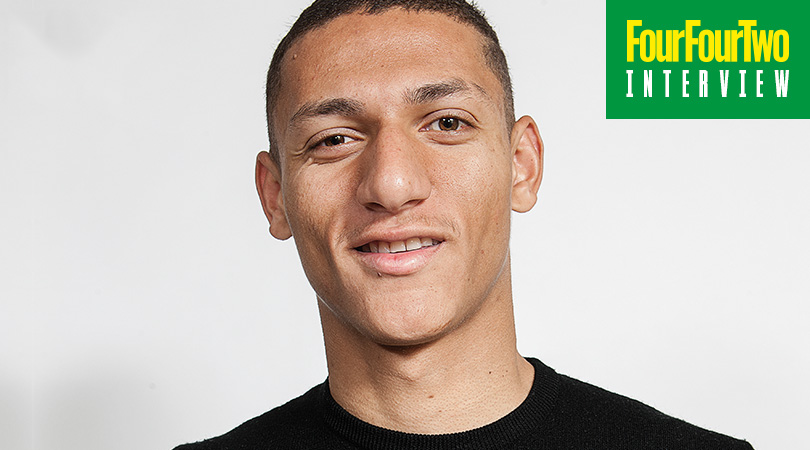
Richarlison stares blankly at the miniature pool table waiting at his feet. “Can you pot one of the balls?” asks FourFourTwo’s English photographer. The Watford forward turns to a Brazilian member of the crew for an explanation in his native tongue.
Clarification doesn’t cure the look of bemusement, but, undeterred, he collapses his gangly 5ft 11in frame like a Transformer experiencing a mechanical malfunction, elbows and knees akimbo as he lines up his shot. As FFT’s photographer crouches into position, Richarlison’s agent, his agent’s wife and a family friend hang over the back of a sofa at his Hertfordshire home, each poised to capture the moment on camera phones.
CRACK! The white ball connects with its intended target, propelling it into a corner pocket. “YEAAAHHH!!!” his trio of devotees cheer, throwing their hands up in celebration. “Got it,” says the snapper.
It only took one take. Like a lot of other things the Brazilian has attempted since coming to England last July, it all comes too easy. The 21-year-old cost Watford £11.5 million from Fluminense – a fee they’ve more than trebled in just a year thanks to Everton.
But dealing with the pressure of a big transfer fee is a doddle when you’ve previously had a drug dealer point a gun at your head.
“My life could have ended several times from being in the wrong place at the wrong time,” he tells FFT, as the tone of our meeting quickly gets decidedly more serious.
“On the day that the guy pointed the gun at my head, he thought I was a drug dealer trying to steal his distribution point. I was scared. I thought: ‘If he pulls the trigger I’m dead’ – but I survived and moved on.
Get FourFourTwo Newsletter
The best features, fun and footballing quizzes, straight to your inbox every week.
“I had a dream of being a footballer and I focused on training to reach my objective. I’ve always made the right choices and God has put me in the right place.”
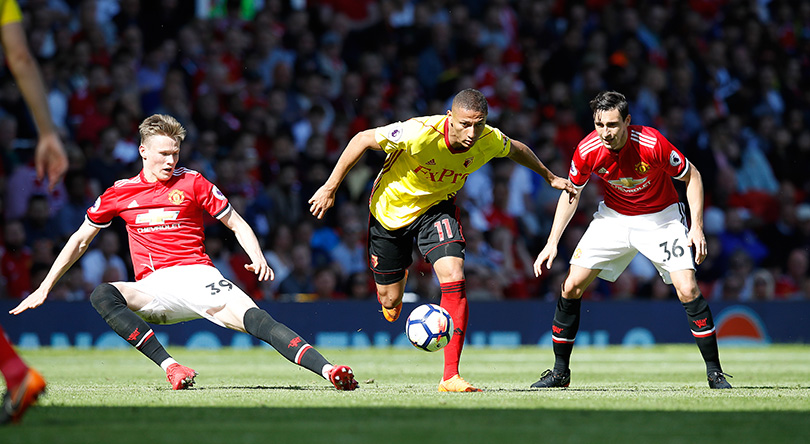
He was doing well, and so were Watford last season. After making their best-ever start to a Premier League campaign, the club suffered a major loss of form. Manager Marco Silva was sacked in January and a new era under Javi Garcia began.
The club's downswing didn't affect Richarlison, though, who hadn't allowed himself to get carried away. “I kept my feet on the ground. I knew I hadn’t won anything,” he says.
Poverty, a broken home, rejection, a near-death experience – the young attacker’s mettle has been tested by far more harrowing experiences than a drop in performance. No matter what’s been thrown at him, one goal has remained a constant. He puts down the pool cue and sinks into his comfy sofa to tell FFT all about it.
High as a kite
While Richarlison endured many of his toughest challenges in his hometown of Vila Rubia, a rough area of Nova Venecia in south-east Brazil, he can’t help but smile when he recalls his childhood.
“It’s a nice city and I always go home to visit when I have holiday,” he says with a smile. “I like to fly my kite there – I was going to bring one back here, but it’s very cold and I can’t do it outside.”
Shouldn't a young millionaire footballer be cruising in a Bentley full of Cartier carrier-bags? Apparently not this one.
“I was raised by a very humble family, so I grew up playing with with kites and footballs,” he explains. “Once our neighbour cut their grass and threw it away, so me and my brother picked it up and planted it at my house to make a pitch. We made two goalposts and played football.”
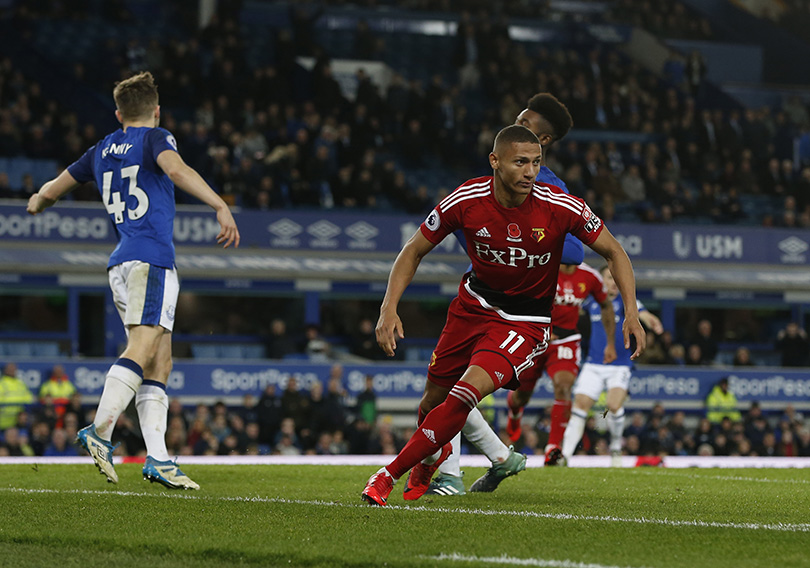
Nothing was going to stop Richarlison achieving his dream – not a lack of pitch, and not the pressure to turn to drugs to escape the hardships of poverty.
“Where I lived there were a lot of people that used drugs and guns, so although it was quiet, it was dangerous. Several times I was offered weed, but thank God I never smoked it. The coaches from my football school were police officers and they always gave me and my brother good advice.
“A lot of my friends got lost on drugs and most of them are in prison. I still talk to them, but I have a lot to be thankful for not going down that path. I had a conscience. I couldn’t do it.”
Round education
As with many children from Brazil’s impoverished areas, football was Richarlison’s ticket out of a poor neighbourhood. But talent alone wasn’t going to be enough to propel him to superstardom. At a young age he was forced to make big decisions – decisions that required the foresight, maturity and mental fortitude of a person much older than seven.
“My mum and dad split up and she was moving out of Nova Venecia. I was on top of the moving truck we were leaving on and I jumped down and went running to my dad,” he recounts.
“I knew my mum I wouldn’t play football or take me to games, so I went to my dad and stayed with him until I was 10.”
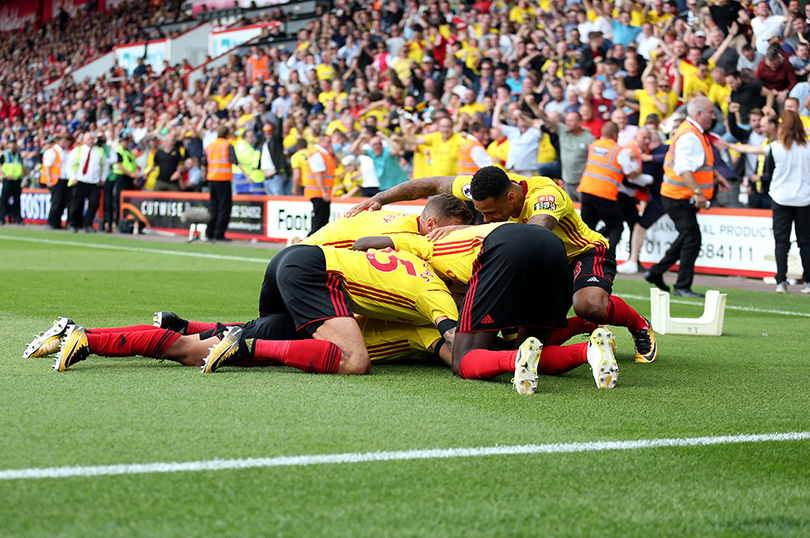
When his dad relocated for a new job, Richarlison had to move back in with mum. And when she struggled to provide for her four children on a cleaner’s wage, Everton’s future No.30 went to work.
“I worked at a car wash, I sold popsicles, made chocolate truffles and sometimes I would work with my grandfather, but I didn’t like it,” he says.
“Football, the game I’d played since I was a kid, was all I could think about. Every Monday I would run 9km to the football school and train, whether it was in the hot sun or the rain. I didn’t want to do anything else.”
Pay day
His relentless dedication paid off, earning him trials with Brazilian clubs Avai and Figueirense. But just as quickly as his dream started to take off, it was shot down – testing his resolve once again.
“Figueirense told me they didn’t want me – on my birthday. I was very sad and thought about giving up,” he says. “But when I got home to my family they gave me strength, and my coach at Gazetinha told me to keep going.”
He wiped away the tears and paid heed to their advice, joining Real Noroeste to play in the under-20 championship. Richarlison caught the eye of a scout from America-MG, who invited him to try out for their youth academy in Belo Horizonte, some 350 miles from home.
He had to impress – not just to get his dream back on track, but because he couldn’t afford to get home. “I had a one-way ticket because I got hungry and spent the money for a return ticket on food. I had to succeed,” he reveals.
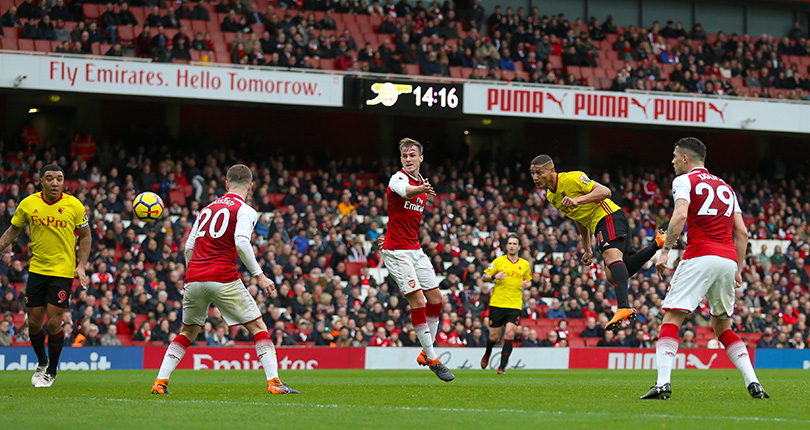
His high-risk ploy reaped a high reward when America-MG signed him to the academy in December 2014. Within four games, he had made history. He starred in the final of the U17 Campeonato Mineiro tournament, providing an assist as America-MG beat Atletico Mineiro to win the trophy for the first time in 17 years.
Suitably impressed, first-team manager Givanildo Oliveira promoted him to the senior squad – but as Richarlison has come to expect along his bumpy road to the top, there was a setback.
“I suffered a serious injury and had to have a screw put in my foot. I was out for three months,” he says, his face contorting with frustration, as if still in pain.
“I would wake up at 5am to do my rehab and go home at 8pm. It was a very sad year, but I learned a lot from it and worked hard to come back even stronger.”
The ascent
And he did: scoring nine goals and laying on another four for his team-mates in 24 games for America-MG as they won promotion to the Brazil’s top tier, Serie A.
A career that kept derailing was now on a fast track to the top. Major sportswear brands and the nation’s top clubs courted a superstar on the rise: he signed a multi-million pound deal with Nike, and while Cruzeiro, Palmeiras and Corinthians all made enquiries, the 18-year-old opted to sign for Fluminense.
Coursing with confidence, Richarlison flourished in Rio, and took his club form into international duty with Brazil. At the U20 South American Championship in Ecuador last January, he put on a show for the scouts, scoring two goals in a team that largely disappointed – they finished fifth overall, failing to qualify for the age-group World Cup.
Nevertheless, Dutch giants Ajax were interested. Negotiations were at an advanced stage, the deal was on the table and Richarlison was on a flight to Amsterdam. Until his phone rang. This wasn’t a setback – a development he had become accustomed to – it was a Premier League manager.
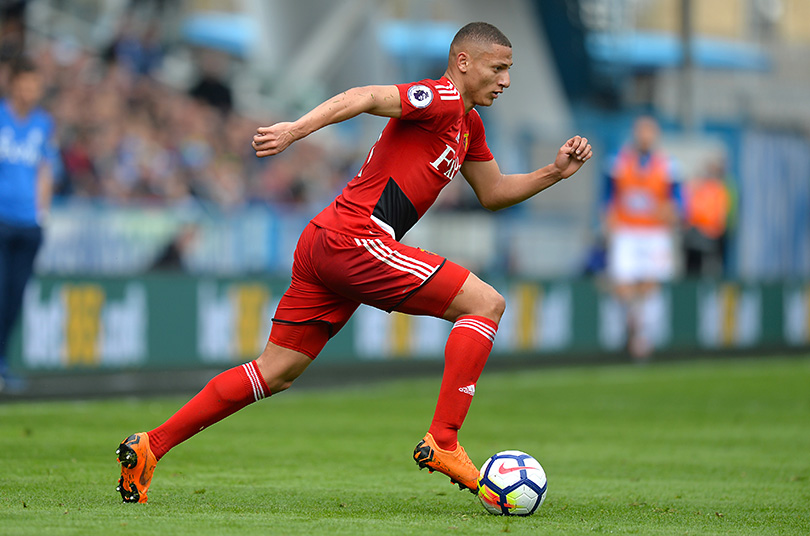
“The Watford offer came out of nowhere,” says the forward. “Everything was arranged for Ajax when I received the call from Marco Silva.
“I ended up changing my mind because to play in the Premier League was a childhood dream, so I didn’t think twice before coming here.”
Some might ask why a player might turn down one of football’s most famous clubs to play for Hertfordshire’s humbler Hornets; the cynical will cite financial gains. They’d be wrong. The Dutch club offered him a more lucrative deal, but the lure of the England’s top flight was too strong.
“Ajax is a big club that plays in the Champions League and I would have got more money there. I came here to play in the Premier League and stand out. No amount of money could ruin my dream.”
Running start
And stand out he did, scoring five goals in first 13 games. Reality was proving better than the dream, even if he soon realised the slow, metronomic rhythm of the Brazilian league was a home comfort he couldn’t bring over on the plane.
“I was on the bench for my first game against Liverpool and soon realised the game was very different here – players ran for the whole 90 minutes,” he laughs. “You have to train hard and recover well so you don’t get cramps during the game.”
Watford fans were quick to reward his efforts with a terrace chant.
“After I scored my first goal [against Bournemouth] I ran to the centre of the pitch and the crowd started to sing my name – as soon as I realised I got emotional,” he says, before reciting the song especially for FFT: “Rrrriiiccchhharrrllliiiison... Rrrriiiccchhharrrllliiiison!”
Silva’s penchant for a high-intensity pressing game, complemented by a counter-attack that can be unleashed at breakneck speed, challenged Richarlison to reach a new level of athleticism. But finding the fuel was an issue to begin with. He was burning more than he consumed and he started to shed weight.
“I didn’t like the food and I lost 5kg because I was staying in a hotel and just eating hamburgers – it’s the closest thing I could find to a Brazilian dish,” he explains.
“Then I found a home, my agent and his wife came to live with me, and I started to eat more rice and beans. Slowly that started solving things. We also found a Brazilian butcher in Radlett and he imports a cut of meat from south Brazil that you would usually have at a barbecue.”
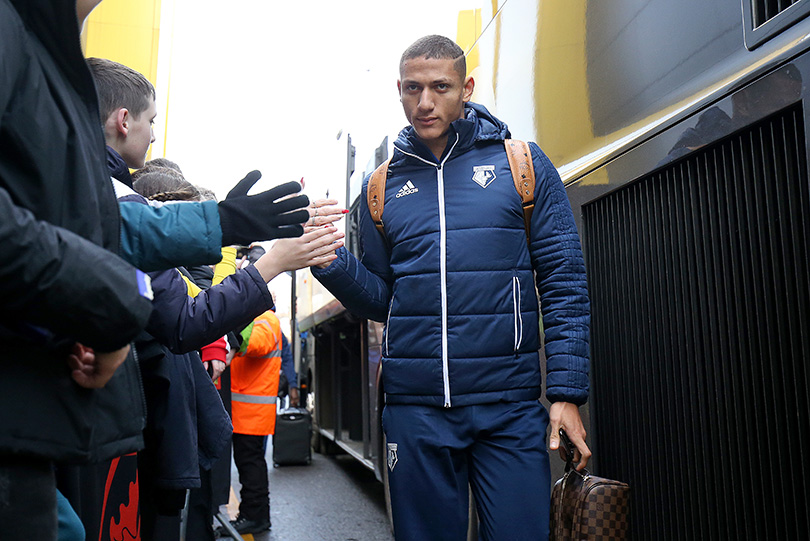
FFT inhales a whiff of this evening’s meal – beef stew. “It’s delicious,” Richarlison hums.
With his muscles finally receiving the nourishment they need, the Brazilian made the training ground his second home; even the offer of a night out with his boyhood hero and Brazilian megastar Neymar couldn’t distract his focus.
“Neymar was in London playing for Brazil against England,” says Richarlison. “After the game he called me and asked if I wanted to join him and his friends on a night out.
“It was a great opportunity. As a kid I would copy Neymar a lot. I even styled my hair in a mohawk and used hair-straightening product. But I’d played on the Saturday and needed to rest, and I had training the next day so I decided to stay at home.
“The training in England is hard. The players are always out to get you. Every time I get the ball I jump because I know they’re going to hit me.”
Young Ronaldo?
His sacrifices paid dividends on the pitch; for the first half of last season in particular, he terrorised defenders with this direct style of play – using his speed, skill and balance to surge past opponents. Gushing praise soon followed, with Sky Sports pundit Jamie Redknapp comparing him to one of the all-time greats.
“The little things that he does are a little bit like a young Ronaldo (the Brazilian),” he said after watching Richarlison during Watford’s 4-2 loss to Chelsea.
“I'm not saying he can be as good as him but he does special things on the ball that only a few people can do – he drifts past people, there's a little bit of petulance in his game still, but if the manager can polish that diamond that's there then he's onto something.”
Silva and Richarlison quickly shifted expectations at Vicarage Road. By November Watford were eighth and stirring panic among the Premier League’s hierarchy. Life was good, until the ripple effect of a decision made by Everton’s board in October reached Hertfordshire.
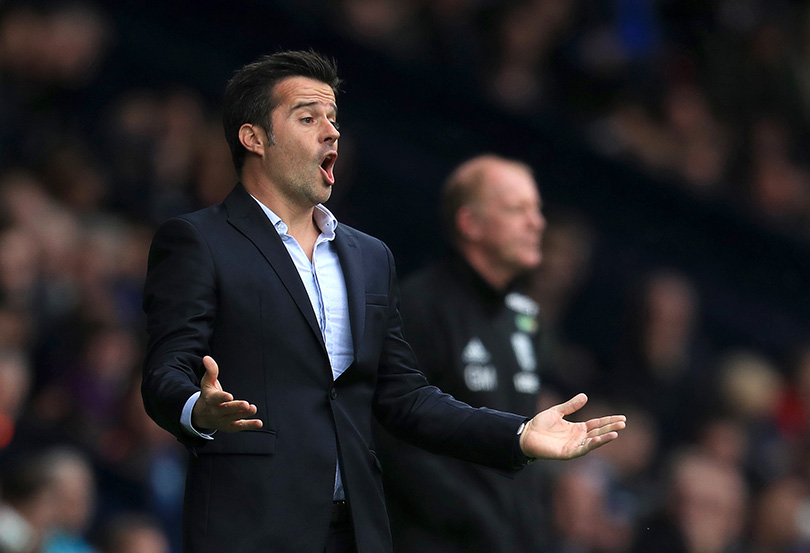
The Toffees had sacked Ronald Koeman with the team languishing in 18th place. The ambitious new owners peered over the Vicarage Road fence, liked what they saw and fluttered their eyelashes. Try as he might to resist, Silva couldn’t help but take notice – but Watford’s owners refused to budge, even when Everton offered £10m for the Portuguese’s services.
That speculation unsettled the manager and the team: after collecting 15 points from the first eight matches, Watford gained just 11 from the next 16 games, costing the Silva his job. The Hornets cited the “unwarranted approach” from Everton as “the catalyst” for the decision.
Whatever his failings were, Richarlison wasn’t happy with Silva’s departure and hit Twitter to vent his displeasure, tweeting an angry face emoji.
“Marco Silva helped me a lot,” says Richarlison, explaining his outburst. “He’s a very organised guy who demands a lot from his players. He was always out on the training pitch, showing us how to start games and making us believe we can beat anyone.”
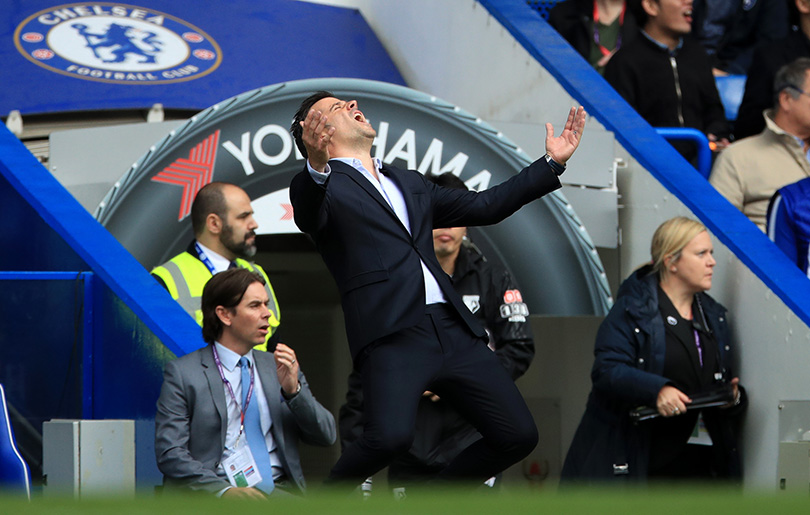
Silva was replaced by Spaniard Javi Gracia – the 10th manager to work under the Pozzo family, Watford's owners, since 2012.
“But a new day will always come and when you least expect clouds to clear,” Richarlison later tweeted, to show he was looking forward to a fresh start under the new manager.
Little did he know then that he wouldn’t have to wait too long to link back up with Silva, who replaced Sam Allardyce at Goodison Park in June. The Portuguese made Richarlison his first signing for a hefty £35m, which could rise to £40m – a glowing act of faith if ever there was one.
Little Brazil
Despite speculation having linked him to some of England’s biggest clubs for much of last season, Richarlison was able to focus on his game because of the environment he has built at home, having turned his little corner of Radlett into a Brazilian haven.
“My friends help me a lot. They’re very playful – they sing and dance, and this helps a lot with the adaptation to a new country,” he smiles.
“We learn English together,” he says, unpeeling the post-it note that says ‘Sheep’ accompanied by a sketch of the fluffy farmyard animal. Has he got a pet sheep? “No,” he laughs. “Our teacher puts these little papers on the walls to help us learn the language.
“And then there’s Heurelho Gomes (Watford’s Brazilian goalkeeper). He’s been like a father to me, helping me sort out a car, a house – basically everything.”
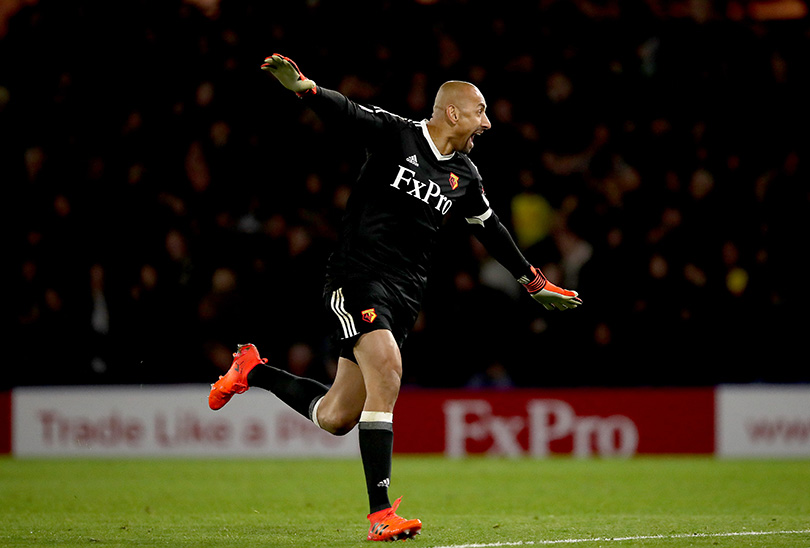
Richarlison has made life so comfortable in England, his old instincts kick in when he senses danger. “The paparazzi are crazy here,” he exclaims. “A photographer came running at me and put a camera in my face. I got scared – I thought the guy was about to rob me.”
The days of coming face-to-face with criminals on the street are hopefully behind him, but the struggles of his old neighbourhood are never far from his thoughts. Richarlison’s rapid ascent to the world’s most-watched league hasn’t cost him a sense of perspective. Still only 21, he clearly remembers his career’s darkest moments – and they afford him moments of childlike fandom.
“I was rejected by Avaí and Figueirense, but today I’m playing in Premier League against great players,” he gleams. “When I played against Manchester United for Watford and saw Zlatan Ibrahimovic, it made my eyes shine. This is a childhood dream that came true.”
That’s one achievement ticked off the bucket list; now he wants to be the player standing in the tunnel, lighting up the eyes of the next generation.
To reach that level of distinction, he’ll need to pull on the famous yellow shirt of the Seleção and prove himself as a world-class player. He’s still yet to win a senior cap, but Richarlison has set his sights high.
“If I stay focused, train hard and [Brazil manager] Tite sees that, he will call me,” says the youngster. “I will raise my level. I think about playing in the Champions League and being the top scorer in the Premier League. I came to England to make history.”
Everton are the latest stop on that winding journey. As long as he has a dream to chase, he’ll keep on pushing.
Interview: UIisses Neto
The original version of this feature appeared in the April 2018 issue of FourFourTwo. Subscribe!
